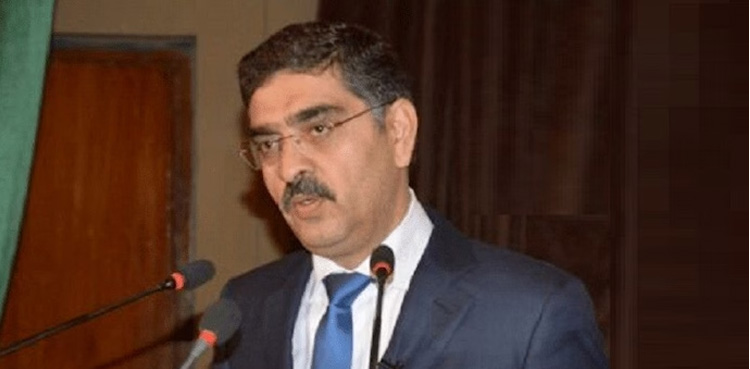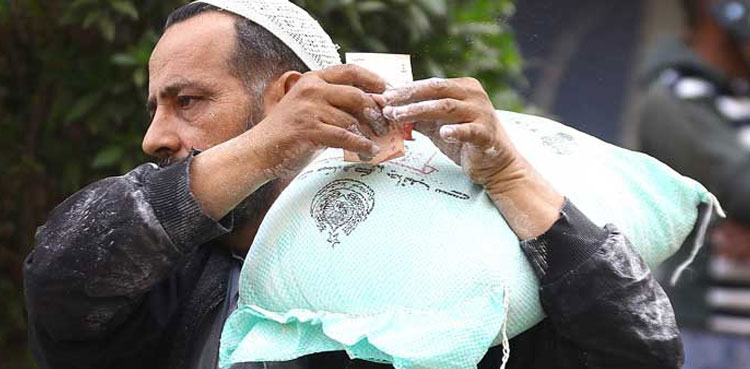The tenure of PMLN-led coalition government is over giving way to hustle-bustle of dealing with a caretaker administration, mandate of which is to ensure holding of fresh elections in the country.
It was reported that the caretaker administration may exceed its statutory allocated tenure in office and such reports elicited a mixed response from many quarters with strong voices emerging to resent such a development but many ventured to support such measure keeping in view the intense polarisation in the country that needed some period of calm under a politically neutral setup.

It cannot be said how matters will be worked out in future and what is in store for the country but portents are the complications that have rocked the polity may take considerably long time to be removed and ironed out. In a complex society like Pakistan it is doubly difficult to overcome problems created by the very complexity of its existence unless a widely comprehensive consensual arrangement is worked out and earnestly implemented and followed.
For the time being. However, any satisfactory solution to the current issues faced by the country appear to be far-fetched though one should always expect that collective wisdom may emerge sooner than later that may see that things get on the way to recovery.
In this context it was initially reported that the risks attached to the short-term $3 billion Standby Arrangement (SBA) programme of the IMF will multiply manifold with the possibility of an extension in the tenure of caretaker setup after the approval of the 7th Population and Housing Census.
It is pointed out in this respect that the approval of the Council of Common Interests to the delimitation results and their subsequent notification may cause the forthcoming elections to be delayed beyond three months. This eventuality may consequently extend the tenure of the caretaker administration and this may be objected upon by the IMF. However, these apprehensions were laid to rest when it was reported that IMF is likely to work with a prolonged caretaker setup in the country to complete its ongoing SBA programme.
It was further reported that Pakistani authorities have taken the IMF into confidence over the possibility of extending the tenure of the caretaker setup due to the issues related to the census and delimitation of constituencies.

The Election Commission of Pakistan (ECP) requires four months for undertaking the delimitation exercise and two more months are needed to complete the elections process, so the next elections might not be held in 2023 and there is a possibility that the elections may take place in the first quarter of 2024. It is also mentioned that when the SBA program of $3 billion was designed it was envisaged that it would be completed during the tenure of three different governments. The first instalment of $1.2 billion was already released during the tenure of PDM-led regime and it was thought that the first review would be undertaken on the basis of first quarter (July-September) data of different sectors of the economy with possibility of Fund dispatching its review mission to Islamabad in the third week of October. Completion of all targets may result in approval of second tranche of $700 million in December 2023.

It is also reported that the second review of IMF programme might be undertaken in February 2024 and the SBA programme would be accomplished in March/April 2024. With the possibility of an extension in the tenure of caretaker setup, the responsibility for materialising all structural benchmark, performance criteria and indicative targets may be handled by the caretaker administration and IMF will strictly monitor all key targets.
Completion of SBA criteria is essential in order to graduate for the ongoing programme and then qualify for another medium-term programme of the Fund beyond March/April 2024 in order to remove the vulnerabilities faced by Pakistan on repayment of external loans.
Though it is rather early to pass a verdict on the economic performance of the recently ended tenure of the coalition government yet it may not be out of place to point out some factors that appear pretty significant. One aspect that many analysts agree upon in respect of 16 months of the governance of the coalition government is exorbitant increase in prices of almost everything that is sold on the market and outside it. The outgoing administration completely failed to curb the onslaught of price hike that has imposed an unbearable burden on consumers who face daily increase in the prices of food items, transport charges and power and gas utility bills.
The coalition government actually contributed to the price scourge and its short tenure would be remembered for its free-for-all price spiral that may keep on increasing as the mechanism to put a stop to it has simply become dysfunctional.
It may however be not out of place to mention many factors behind this unrelenting inflation that include rupee steeply losing its value substantially decreasing the ability to pay of the common man along with higher global commodity prices due to the pandemic exacerbating further after Russia-Ukraine war.
The erratic policies of successive government after 2018 elections particularly their caving in to all demands of the International Monetary Fund (IMF) to secure loan instalments bringing in an unending spate of inflation that proved disastrous to the people. The lack of governmental control was evident when it failed to rein in goods manufacturers in the private sector who enjoyed a free hand to keep raising prices at whim. There was and is no bar to price increases brought in by the private sector virtually at whim and this trend continues unabated.

The primary staple of Pakistanis is wheat that has broken many records of high pricing. Wheat flour rates hit record highs despite a good wheat harvest of 27.63 million tons and imports of 2.73 million tons during the previous fiscal year costing over one billion dollars. Flour millers kept pushing up the flour rates and the reason they cite is delay in the release of wheat by provincial governments, dependence on costly wheat from the open market, almost a 100 per cent rise in procurement price offered to wheat growers, and the smuggling of wheat to Iran and Afghanistan.
The rest of the damage was done by the influx of investors, hoarders and speculators in the wheat and sugar sectors on which no serious progress was made to recover the piled-up stocks. Another notable jump came in ghee and cooking oil prices despite an 8.5% jump in imports of palm oil to 3 million tons during 2022-23.
It is also pointed out that successive governments, particularly the one that has just gone out, provided a subsidy of Rs.30 billion on essential items at subsidised rates at over 500 utility stores in the country but the practice just failed to alleviate difficulties caused by unrelenting price spiral as most of these stores operate in posh areas with the result that only 20 per cent of really needy people benefitted from them. Many people have now pinned hopes on the caretaker setup to take steps aimed at halting the price spiral and getting prices reduced.









